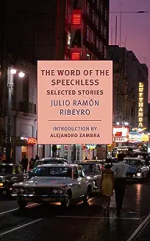Daniel del Real
Moderator
Many things have been said about this movement and his key participants, but what about some other excellent writers from the same region that were out shadowed by it?
First of all, we need to define who was part of the boom, and the easy answer is that the main 4 were, without a doubt, GGM, MVLL, Cortázar & Fuentes.
One step behind we have writers like Roa Bastos, Donoso, Carpentier, Cabrera Infante, Lezama Lima, Asturias and Onetti, names that weren't always in the show lights but took advantage of it to be recognized and read in translation.
Then we have the outsiders, writers that were writing at that same time but without the reflectors the boom authors had but with the same quality of this group. So here are the names that I propose:
Manuel Puig
Ernesto Sábato
Antonio Di Benedetto
Juan José Saer
Mario Levrero
Julio Ramón Ribeyro
Álvaro Mutis
If you have more names, do tell.
First of all, we need to define who was part of the boom, and the easy answer is that the main 4 were, without a doubt, GGM, MVLL, Cortázar & Fuentes.
One step behind we have writers like Roa Bastos, Donoso, Carpentier, Cabrera Infante, Lezama Lima, Asturias and Onetti, names that weren't always in the show lights but took advantage of it to be recognized and read in translation.
Then we have the outsiders, writers that were writing at that same time but without the reflectors the boom authors had but with the same quality of this group. So here are the names that I propose:
Manuel Puig
Ernesto Sábato
Antonio Di Benedetto
Juan José Saer
Mario Levrero
Julio Ramón Ribeyro
Álvaro Mutis
If you have more names, do tell.

